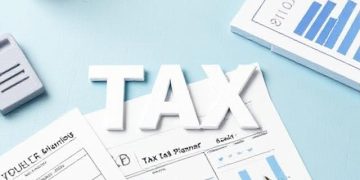Managing your money effectively is crucial for achieving financial success. Part of this process involves understanding and complying with income tax guidelines. By mastering these guidelines, you can maximize your tax savings and ensure that you are in good financial standing. In this article, we will discuss some essential income tax guidelines that you need to be aware of in order to achieve financial success.
Understanding Your Taxable Income
One of the first steps in mastering your money is understanding your taxable income. Your taxable income is the amount of income that is subject to taxation by the government. This includes income from sources such as wages, salaries, bonuses, rental income, and investment income. It is important to accurately calculate your taxable income in order to determine how much tax you owe.
When calculating your taxable income, be sure to take into account any deductions and credits that you may be eligible for. These can help lower your taxable income and reduce the amount of tax you owe. Some common deductions and credits include mortgage interest, student loan interest, and child tax credits.

Filing Your Taxes
Once you have calculated your taxable income, it is time to file your taxes. This involves submitting a tax return to the government that details your income, deductions, and credits for the year. There are several ways to file your taxes, including filing online through the IRS website or using tax preparation software.
When filing your taxes, be sure to double-check your information for accuracy. Any errors or omissions could result in penalties or fines. Additionally, be aware of important deadlines for filing your taxes. Failure to file on time could result in penalties and interest charges.
Maximizing Your Tax Savings
One key aspect of mastering your money is maximizing your tax savings. There are several strategies that you can use to reduce your tax liability and keep more money in your pocket. One common strategy is to contribute to tax-advantaged retirement accounts, such as IRAs and 401(k)s. These accounts allow you to save for retirement while reducing your taxable income.
Another strategy is to take advantage of tax deductions and credits. By keeping track of your expenses and investments, you may be able to claim deductions for things like charitable donations, medical expenses, and education expenses. Additionally, be sure to take advantage of any tax credits that you may be eligible for, such as the Earned Income Tax Credit or the Child and Dependent Care Credit.
Seeking Professional Help
If you are unsure about how to navigate the complexities of income tax guidelines, it may be beneficial to seek professional help. A tax professional can provide you with expert advice and guidance on how to maximize your tax savings and ensure compliance with tax laws. They can also help you navigate any tax issues or audits that may arise.
When choosing a tax professional, be sure to do your research and select someone with the necessary qualifications and experience. Look for a certified public accountant (CPA) or tax attorney who specializes in income tax matters. Additionally, consider asking for referrals from friends or family members who have had positive experiences with a tax professional.

Common Questions About Income Tax Guidelines
Here are some common questions that individuals may have about income tax guidelines:
What is the difference between a tax deduction and a tax credit?
A tax deduction reduces your taxable income, while a tax credit reduces the amount of tax you owe dollar-for-dollar. Both can help lower your tax liability, but they work in slightly different ways.
What is the deadline for filing taxes?
The deadline for filing taxes is typically April 15th of each year. However, this deadline may be extended in certain circumstances, such as during a natural disaster or pandemic.
What happens if I don’t file my taxes on time?
If you fail to file your taxes on time, you may be subject to penalties and interest charges. It is important to file your taxes by the deadline to avoid these consequences.
Can I deduct business expenses on my taxes?
Yes, you can deduct business expenses on your taxes if they are necessary and ordinary expenses related to your business. Be sure to keep detailed records of your expenses to support your deductions.
Conclusion
Mastering your money involves understanding and complying with income tax guidelines. By knowing how to calculate your taxable income, file your taxes, and maximize your tax savings, you can achieve financial success and keep more money in your pocket. Remember to seek professional help if you are unsure about how to navigate the complexities of income tax guidelines. By following these essential guidelines, you can take control of your finances and work towards a secure financial future.
Remember, managing your money effectively is crucial for achieving financial success. By understanding and complying with income tax guidelines, you can maximize your tax savings and ensure that you are in good financial standing. Whether you are filing your taxes for the first time or looking to improve your financial situation, these guidelines can help you achieve your financial goals.

















































